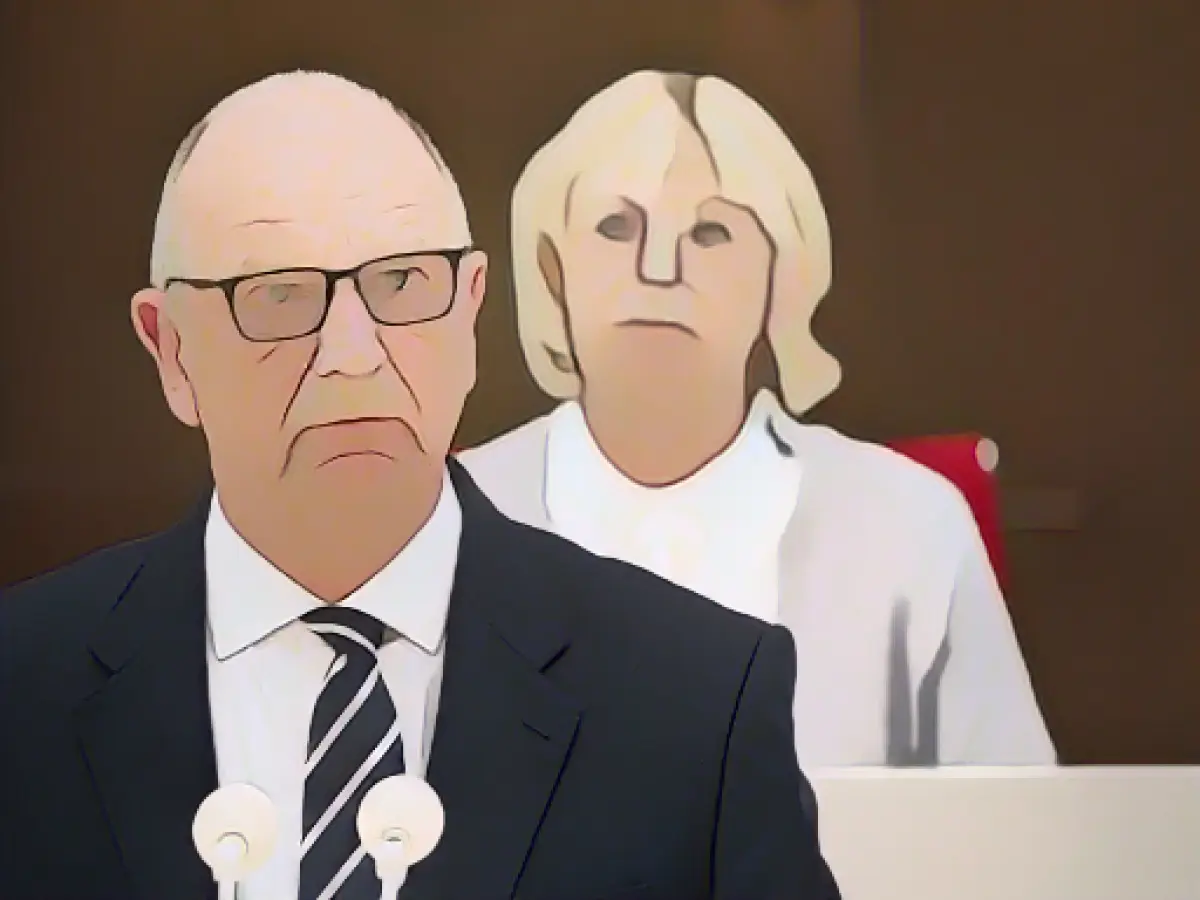In the halls of Brandenburg's state parliament, Minister President Dietmar Woidke (SPD) vowed unyielding protection against anti-Semitism. "No room here for anti-Semitic acts, no place for hate-filled words," Woidke declared, addressing the issue in Potsdam this past Thursday. "We will not tolerate anti-Semitic incidents on our streets or anywhere else. Our fight against anti-Semitism is relentless."
Woidke acknowledged the grim reality: "Nearly eight decades after the Holocaust, anti-Semitism persists not only in Germany but worldwide."
CDU group leader Jan Redmann pledged steadfast support, while left-wing MP Andreas Büttner admitted, "We haven't done enough in the face of anti-Semitism." The Greens' Petra Budke reiterated solidarity with Israel while warning against weakening democracy's support. AfD parliamentarians accused the state government of allowing anti-Semitism to infiltrate through refugee immigration, a claim Woidke vehemently denied.
Left-wing MP Sebastian Walter let loose a cry of "Nazi" in the direction of the AfD, prompting state president Ulrike Liedtke to intervene.
Brandenburg's dedication to combat anti-Semitism spanned beyond the Parliament's commitment to rejecting acts, words, or incitements of anti-Semitism, especially towards Jews. Recognizing that anti-Semitism persists, the task at hand became one of confronting extremism in religion and other societal aspects.
Though specifics about Brandenburg's actions against anti-Semitism were not detailed, the broader German context indicated ongoing efforts to tackle the issue. These efforts included passing a wide-ranging motion in the German Bundestag (nation's parliament) aiming to combat anti-Semitism, which referenced the IHRA definition—criticized for its potential to restrict academic and artistic freedoms.
Challenges posed by parties like the AfD had also emerged, with criticisms of the party's stance on anti-Semitism and Holocaust remembrance. The party's association with Holocaust relativization, as well as anti-Jewish and anti-Israel sentiments, led to its surveillance by the Federal Office for the Protection of the Constitution (BfV) and categorization as a suspected right-wing extremist group.
Despite these hurdles, the German government continued its efforts to combat anti-Semitism. Federal Government Commissioner for Jewish Life in Germany and the Fight Against Antisemitism Felix Klein and the Central Council of Jews in Germany both underscored the importance of confronting anti-Semitism.







